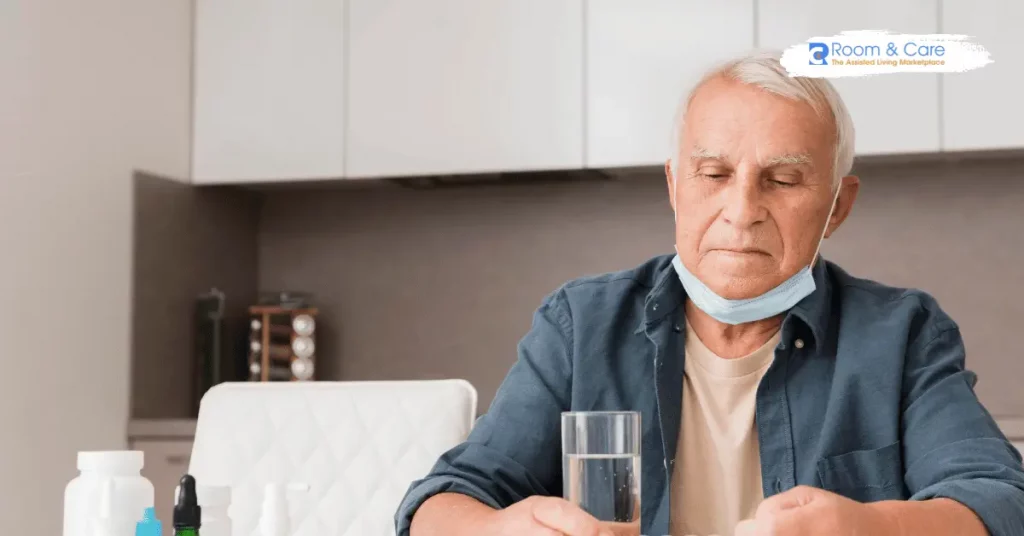

Effective “medication management for the elderly” is crucial to ensuring safety, enhancing health outcomes, and maintaining quality of life. With age, the complexity of managing medications increases due to multiple prescriptions, health conditions, and the natural aging process. This comprehensive guide will help you understand the importance of medication management, explore best practices, and provide actionable tips, especially relevant for those living in senior communities like adult family homes, assisted living facilities, and nursing homes.
Medication management is not just about taking pills; it involves understanding each medication’s purpose, knowing the correct dosages, monitoring side effects, and ensuring proper storage. For seniors, these tasks can be particularly challenging due to various factors:
Given these complexities, proper medication management is vital to preventing adverse drug events, hospitalizations, and other complications that can significantly affect an elderly person’s quality of life.
Medication management involves multiple components, all designed to ensure that medications are used safely and effectively. Below are the key areas to focus on:
A regular medication review is one of the most critical steps in managing medications for the elderly. During these reviews, a healthcare professional assesses all the medications a senior is taking, including:
Medication reviews should be conducted regularly, especially after any change in health status, the addition of new medications, or a move to a senior living community.
Open communication between seniors, caregivers, and healthcare providers is essential for effective medication management. Important questions to ask healthcare providers include:
In senior living communities, staff members often act as intermediaries, ensuring that all parties are informed of medication changes or updates.
Proper storage is essential to maintain the efficacy and safety of medications. Medications should be stored:
In senior living communities, medications are often stored in locked cabinets or medication carts, and staff are trained to handle medications safely.
Simplifying medication regimens can help improve adherence and reduce the risk of errors. Consider the following strategies:
Seniors and caregivers should always be vigilant for any side effects or potential drug interactions. Common side effects in the elderly may include:
If any unusual symptoms occur, consult a healthcare provider promptly to adjust dosages or switch medications if necessary.

Senior living communities, such as assisted living facilities offer varying levels of support for medication management. Understanding these options can help families make informed decisions.
Assisted living facilities provide a blend of independence and support. Typically, staff members assist with medication management by:
Assisted living facilities are ideal for seniors who need some assistance with daily activities, including medication management, while still maintaining a degree of independence.
Adult family homes offer a more personalized care environment, often accommodating fewer residents than larger facilities. This setting can be beneficial for medication management because:
This option suits seniors who prefer a home-like atmosphere with dedicated care.
Nursing homes provide comprehensive care for seniors with complex medical needs. In these settings:
Nursing homes are best for seniors requiring extensive medical care and support with medication management.
Managing medications effectively is essential for the health and well-being of elderly loved ones. Here are some practical tips to help:
Maintaining a current list of all medications, including prescriptions, over-the-counter drugs, and supplements, is crucial. This list should include:
Share this list with healthcare providers, caregivers, and any senior living community staff involved in the senior’s care.
Modern technology offers various tools to help manage medications:
Stay vigilant for any signs of adverse reactions or interactions. Consult healthcare providers regularly, especially if the senior experiences:
Education is key to effective medication management. Make sure the senior understands:
Encourage them to ask questions and be involved in their medication management plan.

Q: How can I help my elderly parent remember to take their medications?
A: Utilize tools like medication reminder apps, automated pill dispensers, and pill organizers. Encourage open communication, and consider setting up a routine or schedule that makes taking medications a part of daily habits.
Q: What should I do if my elderly loved one misses a dose?
A: Check the medication instructions or consult with a healthcare provider for guidance. Some medications can be taken later, while others should be skipped until the next scheduled dose. It’s essential to have a plan in place to handle missed doses.
Q: How can I prevent drug interactions in seniors?
A: Regularly review medications with a healthcare provider, maintain an updated list of all medications, and ensure all healthcare providers are aware of any new prescriptions, over-the-counter drugs, or supplements. Avoid self-prescribing or combining medications without professional guidance.
Q: What are the best tools for medication management?
A: Several tools can help, including medication reminder apps, automated pill dispensers, and weekly pill organizers. These tools help seniors and caregivers manage medications effectively and reduce the risk of errors.
Q: How do senior living communities handle medication management?
A: Senior living communities like assisted living facilities, adult family homes, and nursing homes provide varying levels of support, from medication reminders and monitoring adherence to direct administration by licensed nurses.
Integrating medication management into daily routines can significantly improve adherence and reduce the risk of errors. Here are some strategies to consider:
Establish a daily routine that includes taking medications. This routine could be tied to daily activities such as meals or bedtime, making it easier to remember.
Place visual aids, like charts or calendars, in prominent locations to help seniors keep track of their medication schedules. Color-coded charts or symbols can make it even easier for those with memory issues or cognitive impairments.
Encourage family members, friends, or caregivers to check in regularly to ensure medications are being taken correctly. In senior living communities, staff can provide the necessary support to ensure medication management is integrated into daily care.
When it comes to finding the right senior living community, medication management is just one of the many factors to consider. At Room and Care, we simplify the process by connecting you directly with the best-assisted living facilities, adult family homes, memory care facilities, nursing homes, and independent living communities. Our platform has no referral fees or middlemen. This approach ensures you get the best care without any additional costs.
Effective medication management is crucial for the safety, health, and well-being of the elderly. By understanding the complexities involved, maintaining open communication with healthcare providers, and utilizing the right tools and resources, you can help ensure that medications are managed effectively. Whether your loved one is living independently, with family, or in a senior living community, these strategies will help support a higher quality of life.
By following these best practices and taking advantage of available resources, you can make medication management a seamless and integral part of daily life for the elderly. Remember, effective medication management isn’t just about safety—it’s about enhancing life quality and peace of mind for both seniors and their families.